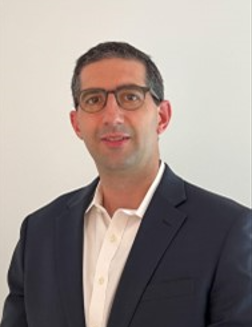Dr Zachary Solomon: The Future of Cardiovascular Surgery
Dr Zachary Solomon: The Future of Cardiovascular Surgery
Blog Article

Cardiovascular surgery, frequently known as center surgery, is a important part of medication dedicated to managing heart disorders and problems affecting the circulatory system. With breakthroughs in medical technology and surgical methods, and knowledge of surgeons like Dr Zachary Solomon Philadelphia, aerobic surgery has seen significant changes, providing trust and therapeutic to countless patients worldwide. The intricacies of cardiovascular surgery, its forms, indications, benefits, and what individuals can expect during the process will undoubtedly be discussed here.
What's Cardiovascular Surgery?
Cardiovascular surgery encompasses a variety of medical techniques developed to deal with problems of the center and blood vessels. These techniques goal to improve structural abnormalities, repair or change damaged valves, obvious plugged arteries, and address other circulatory system issues to enhance patient wellness and extend life.
Popular Types of Aerobic Surgery
• Coronary Artery Avoid Grafting (CABG). It requires grafting a healthy artery or vein from another part of the human anatomy to avoid a clogged coronary artery, thus increasing blood movement to one's heart muscle.
• Heart Device Repair or Replacement. Center valves may become ruined or diseased, ultimately causing limited body flow. Surgical repair or alternative using artificial or natural valves helps regain proper heart function.
• Aneurysm Repair. Dr Zachary Solomon can restoration the aneurysm with an artificial graft to prevent lethal ruptures.
• Heart Transplant. For people with end-stage heart failure, a center transplant could be the sole sensible option.
Clues for Cardiovascular Surgery
Cardiovascular surgery is usually considered when non-surgical remedies (like drugs and lifestyle changes) are insufficient.
Preparation and What things to Expect
Before surgery, patients undergo a thorough evaluation, including medical record, bodily examination, and diagnostic tests.
The Medical Method
The complexity and period of aerobic operations vary. The patient is placed below normal anesthesia, and the precise group along with Dr Zachary Solomon directly watches essential signals throughout the procedure.
Recovery and Postoperative Treatment
After surgery, individuals usually are transferred to the Intense Attention Model (ICU) for close monitoring. Recovery time is dependent upon the surgery form, patient's overall health, and adherence to postoperative treatment guidelines.
Conclusion
Cardiovascular surgery shows a cornerstone of contemporary medication, providing transformative advantages for anyone suffering from heart diseases. With continuous breakthroughs and a passionate give attention to individual treatment, the continuing future of cardiovascular surgery appears promising. Report this page